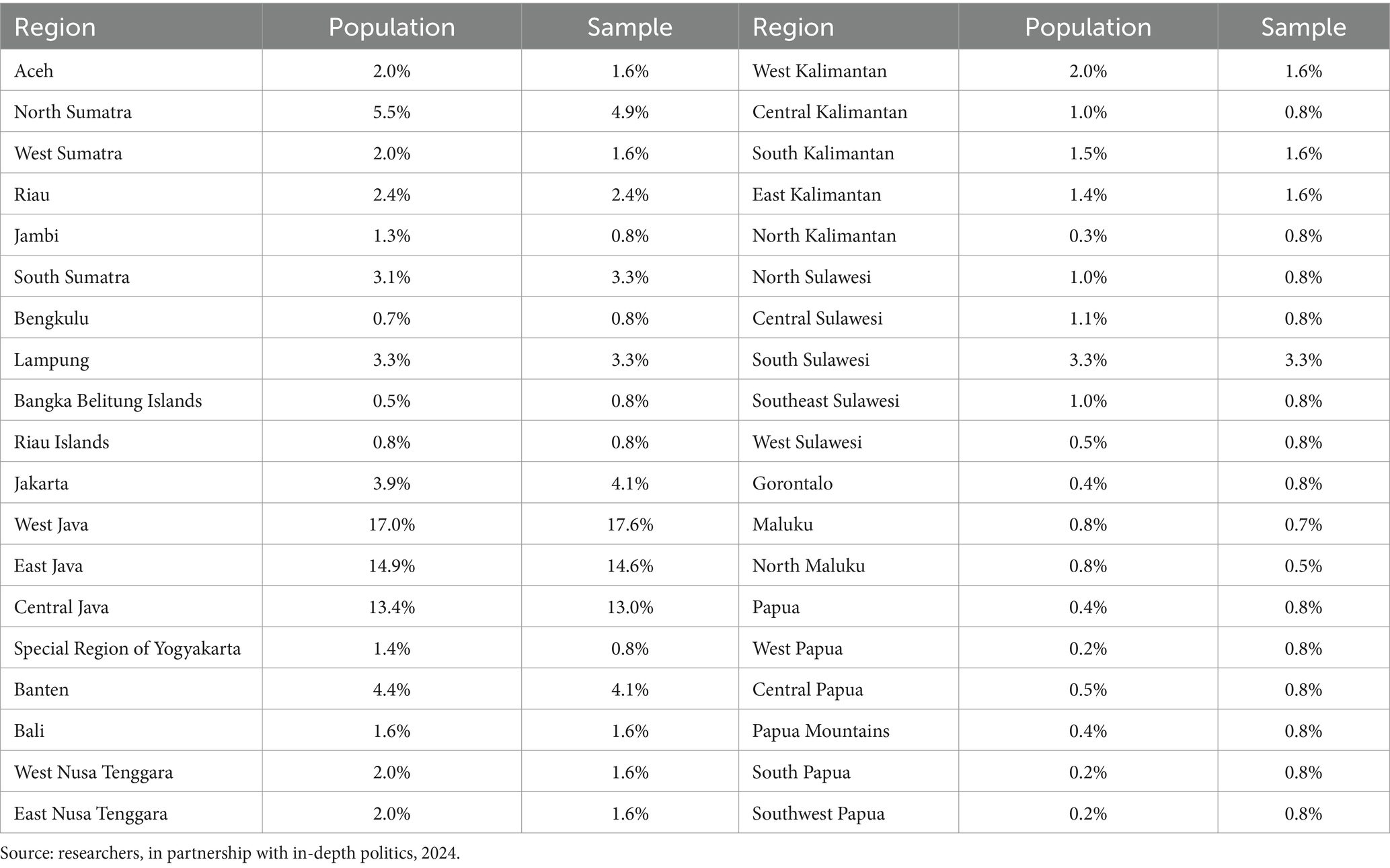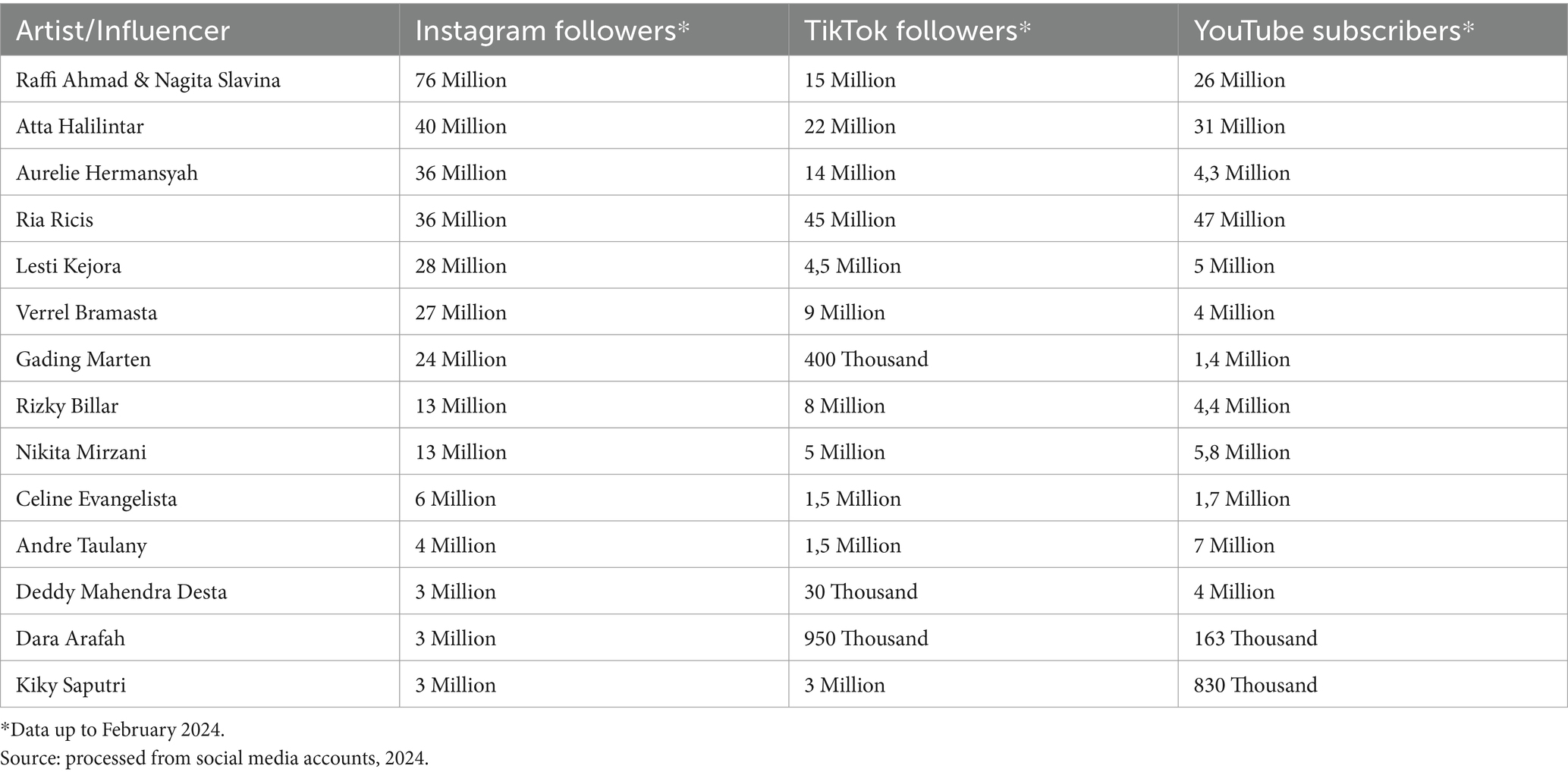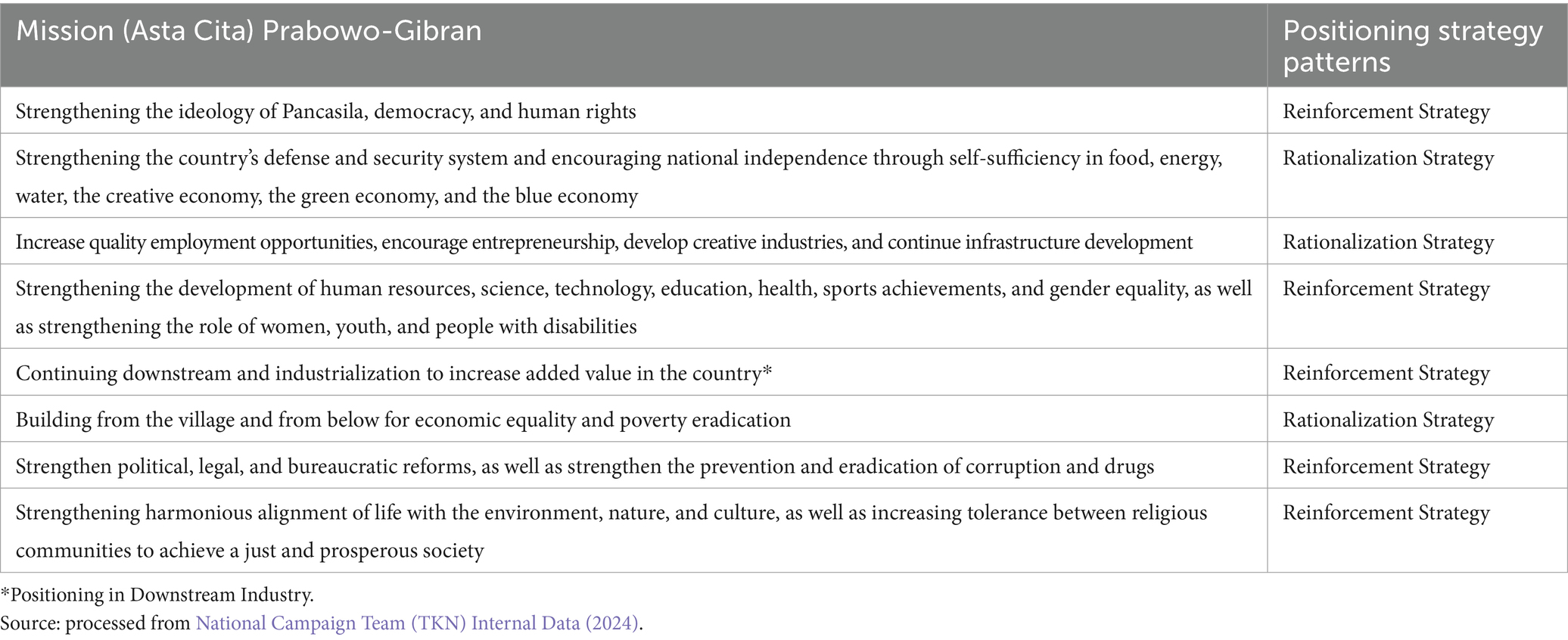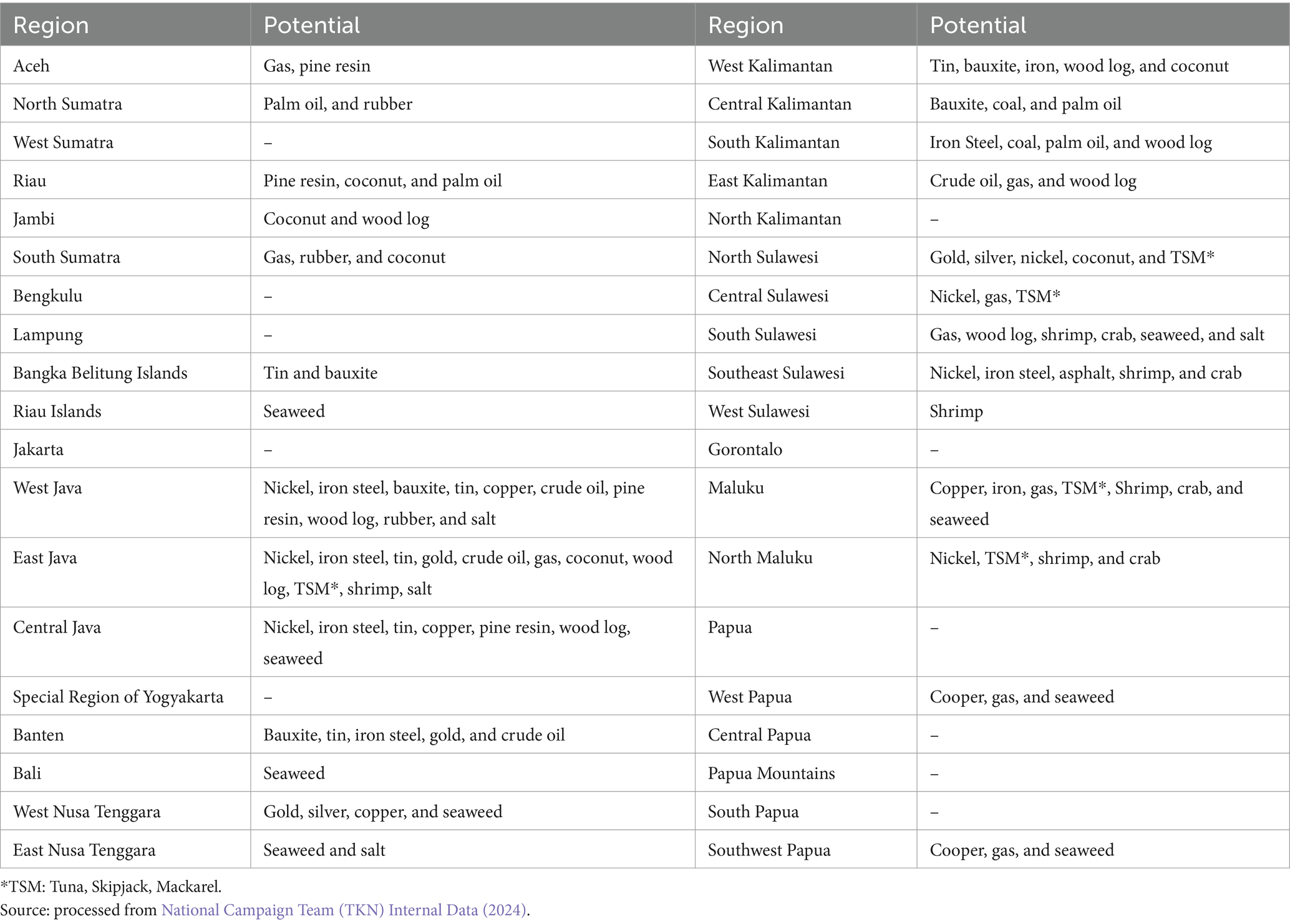- 1Ministry of Education, Culture, Research, and Technology, University of Palangka Raya, Palangkaraya, Indonesia
- 2Faculty of Social and Political Sciences, University of Muhammadiyah Makassar, Makassar, Indonesia
This research explains how Prabowo Gibran’s politainment strategy and their political positioning on downstream industry issues during the 2024 Indonesian presidential election. It further evaluates voter perceptions of Prabowo-Gibran’s politainment strategy and their political positioning on these issues. This study employed a mixed-method approach using a sequential exploratory strategy model. The qualitative approach was carried out using in-depth interviews and documentation techniques, while the quantitative approach was carried out using a survey method. The results indicate that Prabowo-Gibran’s politainment strategy was highly effective in garnering support and increasing their vote share in the 2024 election. The majority of Prabowo–Gibran voters viewed this strategy positively and highlighted its effectiveness in influencing voter decisions. Additionally, the majority of voters expressed agreement and optimism with Prabowo-Gibran’s political positioning in sustainability policies for the downstream industry. These findings offer valuable insights to candidates and political parties by providing guidance on the effective use of politainment and strategic political positioning to influence final voter decisions in general elections.
1 Introduction
Presidential elections in Indonesia, which is the third largest democracy in the world [The Economist Intelligence Unit (EIU), 2022], have long been an topic of interest in national and international public discourse. In the 2024 Indonesian presidential election, which witnessed 204.8 million (204.807.222) registered voters (The General Elections Commission of Indonesia, 2023), a new phenomenon in terms of competing candidates has emerged: the use of politainment by candidates in their political marketing strategies, especially by the elected President Prabowo Subianto and Vice President Gibran Rakabuming Raka.
It is known that Prabowo–Gibran are the elected President and Vice President in the 2024 Presidential election in Indonesia, with a final vote percentage of 58.59% (96.214.691), beating their competitor Anies–Muhaimin by 24.95% (40.971.906) and Ganjar–Mahfud by 16.47% (27.040.878). Across 38 provinces in Indonesia, Prabowo–Gibran’s final vote acquisition received at least 20% of the votes in each province (The General Elections Commission of Indonesia, 2024).
Prabowo–Gibran’s win in the 2024 presidential election represents Prabowo’s largest vote gain from his previous presidential elections. In addition, Prabowo-Gibran won the regions traditionally dominated by opposition forces, although the influence of Jokowi’s support as the President cannot be overlooked (Kuipers et al., 2024). However, Prabowo–Gibran’s political marketing strategy certainly played a significant role in their victory of the 2024 presidential election, especially through politainment strategies. Politainment (political entertainment) is a strategy used in political communication during general elections, combining politics and entertainment to maximize electoral support from voters (Schultz, 2012; Lituhayu et al., 2023).
This is certainly very interesting to research. In the presidential election in Indonesia in 2024, it is known that the Prabowo-Gibran National Campaign Team (TPN) is massive in using various methods of political communication through politainment strategies. This strategy is also accompanied by optimizing the use of mainstream media and social media, including the use of other digital platforms (Fardiansyah and Euis, 2024).
On the other side, in the 2024 presidential election, the political positioning of the candidates on national strategic issues is a serious concern for voters. For example, Prabowo-Gibran’s political positioning on the issue of energy transition and downstream industry sustainability has become a serious concern for voters in various segmentations (Firdaus and Wibowo, 2024). The downstream industry is the activity of processing materials originating from raw natural resources to be processed into finished materials (Krustiyati and Gea, 2023). Another interesting thing is the results of research through big data analysis, stating that Prabowo-Gibran is a candidate who has made minimal statements regarding the energy transition issue both in mainstream media and on social media (Bright Indonesia Foundation and Markdata, 2023).
Overall, this research will explain how the Prabowo-Gibran politainment strategy was implemented and how Prabowo-Gibran political positioning is on downstream industry issues in the 2024 presidential election. Then, this research measures Prabowo-Gibran voter perceptions of the Prabowo-Gibran politainment strategy implemented and Prabowo-Gibran voter perceptions of Prabowo-Gibran political positioning on downstream industry issues in the 2024 Presidential election.
2 Political entertainment and political positioning
Politainment is a strategy for carrying out political communication in a general election process, which combines politics and entertainment (Schultz, 2012; Bekenova, 2022). In line with this definition, politainment basically refers to performance media where politics and entertainment are carried out simultaneously (LaMarre, 2015).
Politainment refers to the intersection of politics and entertainment, which can be understood from two perspectives. First, political entertainment involves the entertainment industry leveraging political topics in various entertainment formats. Second, entertaining politics describes how political actors capitalize on their fame or collaborate with artists and influencers through entertainment programs on both mainstream and social media to conduct political marketing aimed at increasing electoral support (Nieland, 2008; Riegert and Collins, 2016).
Currently, politainment on digital platforms has become an effective strategy for political actors to brand their image and political products (Di Nubila et al., 2023). In Indonesia, the phenomenon of politainment can be witnessed in the general election process. This is reflected in both mainstream and social media (Satriawan and Purwaningsih, 2021). In the Indonesian presidential election in 2024, the politainment strategy plays an important role in shaping a new, more relaxed, and pleasant image.
There are many interesting things about the politainment practices in various countries. In the Philippines, Bongbong Marcos Jr.’s communication strategy was rigid in the mainstream media (Ong, 2022). However, on digital platforms, especially social media, TikTok has succeeded in improving its image and political positioning and increasing Bongbong Marcos Jr.’s electoral votes in the presidential election of 2022 (Mendoza, 2022).
Furthermore, in Brazil, Bolsonaro’s political marketing strategy on the YouTube digital platform succeeded in forming a positive political image and products, which ultimately could improve his political image (Di Nubila et al., 2023). A similar thing also happened in Peru, where research results showed that candidates in the presidential election in Peru used the TikTok digital platform for political interests and to improve their image and electoral votes (Cervi et al., 2023).
Meanwhile, in Spain, the political marketing strategy used is TikTok’s digital platform through visual storytelling content and political gimmicks through dance videos (Zamora-Medina, 2023). This digital platform effectively reproduces and distributes various political content packaged in the form of entertainment-oriented toward virality, entertainment, humor, and performing arts to communicate complex political issues in a simple format (Zamora-Medina, 2023).
In the 2024 Indonesian presidential election, the Prabowo-Gibran National Campaign Team (TKN) is very massive in carrying out political marketing through a politainment strategy by optimizing the use of mainstream media and social media, including the use of other digital platforms (Fardiansyah and Euis, 2024).
On the other hand, in the 2024 Indonesian presidential election, the political positioning of the candidates on national strategic issues is also of concern to voters. Political positioning is a political attitude conveyed to voters, aiming to provide or instill a message to voters about the product and political image being offered. There are 4 (four) political positioning pattern strategies that are often used, including (1) strengthening strategy, (2) rationalization strategy, (3) inducement strategy, and (4) confrontation strategy (Satriawan and Purwaningsih, 2021).
Politainment can be interpreted as a political marketing strategy combining politics and entertainment, which is carried out simultaneously. Politainment is an entertaining model of political communication to brand political images and products, aiming to improve voters’ images and political electoral support. Political positioning can be understood as a political attitude conveyed to voters, aiming to provide or instill a message to voters about the product and political image being offered.
3 Data and methods
This research used a mixed-methods approach, using a sequential exploratory strategy model (Hirose and Creswell, 2023). A qualitative approach was carried out using in-depth interviews and documentation techniques (Perry, 2023). An in-depth interview was carried out using purposive sampling. People who were considered to know the most about the problem being researched (Campbell et al., 2020; Nyimbili and Nyimbili, 2024), namely from the Prabowo-Gibran National Campaign Team (TKN). This was carried out with an in-depth, structured, and systematic interview, considering that the Prabowo-Gibran National Campaign Team (TKN) knows directly and comprehensively how the politainment was carried out by Prabowo-Gibran.
A quantitative approach was carried out using a survey method. The sampling method used the Slovin method formula calculation, which is a method for determining the size or number of samples with a relatively large population (Ismail et al., 2022). Respondents were selected using multistage random sampling, which was further broken down to the lowest level (Creswell and Creswell, 2018). Data collection was carried out using face-to-face interviews with respondents using a questionnaire instrument. To enhance the reliability of quantitative findings, the questionnaire was validated and tested using statistical software and Cronbach’s alpha method (Vannette and Krosnick, 2018; Taherdoost, 2018; Nistor, 2024).
The population for this study comprised registered voters across 38 provinces in Indonesia, as recorded by the General Elections Commission of Indonesia. Using the Slovin method formula, the required sample size was calculated to be 1,200 respondents, ensuring a margin of error of 2.9% at a 95% confidence level. To maintain the quality and reliability of the collected interview data, quality control measures were implemented, including random spot checks and recall telephone interviews for 25% of the total sample (Table 1).
In the sequential exploratory strategy model, the first stage was carried out with a qualitative approach, which was the main interpretation priority. The second stage was carried out using a quantitative approach as confirmatory. This research will explain how the Prabowo-Gibran politainment strategy was implemented and how Prabowo-Gibran political positioning is on downstream industry issues in the 2024 presidential election. Then, this research measures Prabowo-Gibran voter perceptions of the Prabowo-Gibran politainment strategy implemented and Prabowo-Gibran voter perceptions of Prabowo-Gibran political positioning on downstream industry issues in the 2024 presidential election. In this case, the politainment strategy and political positioning become variables (X) and will be linked to the voter perception variable (Y) (Berman, 2017; Hirose and Creswell, 2023) (Figure 1).

Figure 1. Mixed methods sequential exploratory strategy design. Source: processed by the author, 2024. Adopted from Berman (2017), Hirose and Creswell (2023).
4 Results
4.1 Politainment in the 2024 Indonesian presidential election
Politainment is a political marketing strategy that combines politics and entertainment, and they are carried out simultaneously. Politainment is a model of political communication in political marketing by entertaining, with the aim of earning as much electoral support from voters as possible. In the 2024 Indonesian presidential election, the Prabowo-Gibran National Campaign Team (TKN) used various politainment strategies. As stated by Dedek Prayudi, B.A., M.Sc. [Spokesman for the Prabowo-Gibran National Campaign Team (TKN)]:
“The political entertainment strategy is a very effective strategy in getting the majority of voters for Prabowo-Gibran in the 2024 Indonesian Presidential election” (In-depth Interview).
In the 2024 Indonesian presidential election, the Prabowo-Gibran National Campaign Team (TKN) used various politainment strategies, including presenting the slogan (sluagh-ghairm) “Gemoy” with visualization using artificial intelligence (AI), utilization of social media TikTok, the presidential campaign song “Okay Gas” followed by “Dance Gemoy,” clothing with a light blue nuance, and the involvement of many artists and influencers who have a large number of followers on social media [Boeky, 2024; The Economist, 2024; Maulana and Harjono, 2024; Syahda and Sumarlan, 2024; Irawan and Lexianingrum, 2024; Center for Strategic and International Studies (CSIS), 2024].
If we look at the other candidates in the 2024 presidential election in Indonesia, visualization using Artificial Intelligence (AI), utilization of social media TikTok, clothing style, and the involvement of artists and influencers are also carried out by other candidates (Maulana and Harjono, 2024; Syahda and Sumarlan, 2024; Fardiansyah and Euis, 2024) (Table 2).
Presenting the slogan (sluagh-ghairm) “Gemoy” with visualization using Artificial Intelligence (AI) was carried out by the Prabowo-Gibran National Campaign Team (TKN) as one of the politainment strategies. “Gemoy” can be understood as an expression of “adorable” to Prabowo as one of the presidential candidates in the 2024 Indonesian presidential election. As stated by Anthony Leong (National Coordinator of the Prabowo-Gibran Digital Team/PRIDE Volunteers) (Figure 2):

Figure 2. Prabowo-Gibran visualization using artificial intelligence (AI). Source: instagram account @prabowo.gibran.2, 2024.
“Prabowo’s “Gemoy” visualization with artificial intelligence (AI) is basically used to attract young voters because the young voters were the majority in the 2024 Indonesian presidential election. It is very catchy to reach them” (In-depth Interview).
In line with this, the results of a survey by the Indonesian Survey Institute (LSI) stated that (sluagh-ghairm) Prabowo’s “Gemoy” with visualization using artificial intelligence (AI) was favored by segmentation of young voters in the 2024 Indonesian presidential election (LSI, 2024). Furthermore, the Prabowo-Gibran National Campaign Team (TKN) also implemented a politainment strategy by optimizing the use of TikTok social media. This is quite effective in reaching all voter segments, especially young voters. For information, TikTok users in Indonesia occupied the second largest position in the world in January 2024, with the number of TikTok users being 126.83 million. The majority of users are people aged 18–24 years (We Are Social, 2024). Apart from that, this digital platform is considered effective in reproducing and distributing various Prabowo-Gibran political content, which is packaged in entertainment form, with the presidential campaign song “Oke Gas” followed by Prabowo “Dance Gemoy,” which is oriented toward virality, entertainment, and humor (Figure 3).

Figure 3. Dance “Gemoy” with presidential campaign song “Oke Gas” on TikTok content. Source: TikTok account @prabowogibran.2, 2024.
This is in line with research results, which state that TikTok is the most popular social media among voters, where this digital platform can be exploited in various ways, including in political communication (Cervi et al., 2023). Meanwhile, many politicians worldwide are joining the digital platform TikTok as a tool to connect with younger voters (Cervi et al., 2023).
Then, regarding visual appearance, Prabowo-Gibran always wears light blue clothes. This light blue clothing is used on every occasion during Prabowo-Gibran political campaign activities. Light blue is considered a color that brings a sense of calm, coolness, and joy and increases concentration. As stated by Budisatrio Djiwandono, B.A. (Commander Bravo-Communications/TKN Prabowo-Gibran), that:
“Prabowo-Gibran wears clothes in shades of light blue on every occasion, aiming to convey that politics must be cool, peaceful, and happy” (In-depth Interview).
In line with this, several research results also show that the choice of colors in political campaign activities in America, England, and the Philippines can influence the interests of voters, where choosing the right color will create an attractive, comfortable, and entertaining atmosphere for the voters (Pavlina, 2023; Alturas et al., 2024; Egea-Medrano et al., 2021) (Figure 4).
In the 2024 Indonesian presidential election, Prabowo-Gibran was also known to involve many artists and influencers in all their political marketing activities. Where every political campaign activity from Prabowo-Gibran will have artists and influencers participating, Prabowo-Gibran political campaign activities will be disseminated and posted on social media by artists and influencers in the form of entertainment content, such as on Instagram, TikTok, and YouTube. Apart from entertaining content, artists and influencers conveyed Prabowo-Gibran’s vision, mission, and programs. As stated by Dr. Hafrizal Okta Ade Putra, S.E., M.M. (Secretary General of the Prabowo-Gibran Digital Team/PRIDE Volunteers), that:
“The involvement of artists and influencers in the Prabowo-Gibran National Winning Team is part of the political entertainment strategy to reach all voter segments” (In-depth Interview).
The artists and influencers involved are popular public figures and have a large number of followers on their social media, which will indirectly influence his followers on social media and will have implications for increasing Prabowo-Gibran voters in the 2024 Indonesian presidential election (Figure 5).

Figure 5. Artists and influencers in the Prabowo-Gibran political campaign. Source: website prabowogibran2.id, 2024.
4.2 Positioning in downstream industry
Political positioning is a political attitude conveyed to voters, with the aim of providing or instilling a message to voters about the product and political image being offered. Prabowo-Gibran’s political positioning in the 2024 presidential election reflects the continuity of the policies carried out by the previous president. This can be seen from the political products and images offered by Prabowo-Gibran in their political campaigns, especially in terms of downstream industry sustainability, which was the focus of the previous president. As stated by Budisatrio Djiwandono, B.A. (Commander Bravo-Communications/TKN Prabowo-Gibran), that:
“Downstream industry is included in the main program in the Prabowo-Gibran political campaign. This program encourages increasing the added value of natural resources, opening up millions of jobs and a multiplier effect in the social and economic welfare.” (In-depth Interview).
In the political positioning offered by Prabowo-Gibran in their political campaign, there are eight missions (Asta Cita), 17 priority programs, and eight fast programs. One of Prabowo-Gibran’s 8 (Asta Cita) missions is to continue downstream industry to increase added value in the country. Downstream industry is a policy in processing products from raw materials into goods that have a higher value (Ashar et al., 2024). The downstream industry is one of Prabowo-Gibran’s strategic policies to increase domestic added value and encourage national economic growth. Nickel is the main commodity that is processed using a downstream industry scheme, considering that Indonesia is one of the largest nickel-exporting countries in the world (Putra and Samputra, 2023) (Table 3).
There are 21 priority downstream industry commodities, including coal, nickel, tin, copper, bauxite, iron, steel, gold, silver, and others, with a total of US$545.3 billion. One concrete proof of the impact of the downstream industry is on the added value of Nickel products. In 2017, exports of nickel derivative products were recorded at US$3.3 billion. After the ban on Nickel exports in 2020, revenues from Nickel derivative exports in 2022 were recorded to increase by around 1000% to US$33.8 billion (National Campaign Team (TKN) Internal Data, 2024) (Table 4).
Overall, the political positioning pattern strategy that Prabowo-Gibran used was a reinforcement strategy. Where every political campaign is carried out, Prabowo-Gibran conveys the political positioning of sustainability/strengthening downstream industry policies, which have been the focus of the previous president. Prabowo-Gibran said that the policy to encourage downstream industry was appropriate and must be continued, and there was no reason for the program to be stopped.
4.3 Voter perceptions of Prabowo-Gibran in the 2024 presidential election
In this section, we will measure how Prabowo-Gibran voters perceive Prabowo-Gibran’s politainment and how Prabowo-Gibran voters perceive Prabowo-Gibran’s political positioning on downstream industry issues in the 2024 Indonesian presidential election.
The results show that 80.5% of voters like the policy strategy implemented by Prabowo-Gibran, while only 7.1% of voters dislike it, and 4.4% of voters do not answer (Figure 6A). Meanwhile, 79.4% of voters agree that the politainment strategy implemented by Prabowo-Gibran influenced their political preferences in the 2024 presidential election, while 14.0% of voters disagree that the politainment strategy implemented by Prabowo-Gibran influenced political preferences, and 6.6% of voters do not answer (Figure 6B).
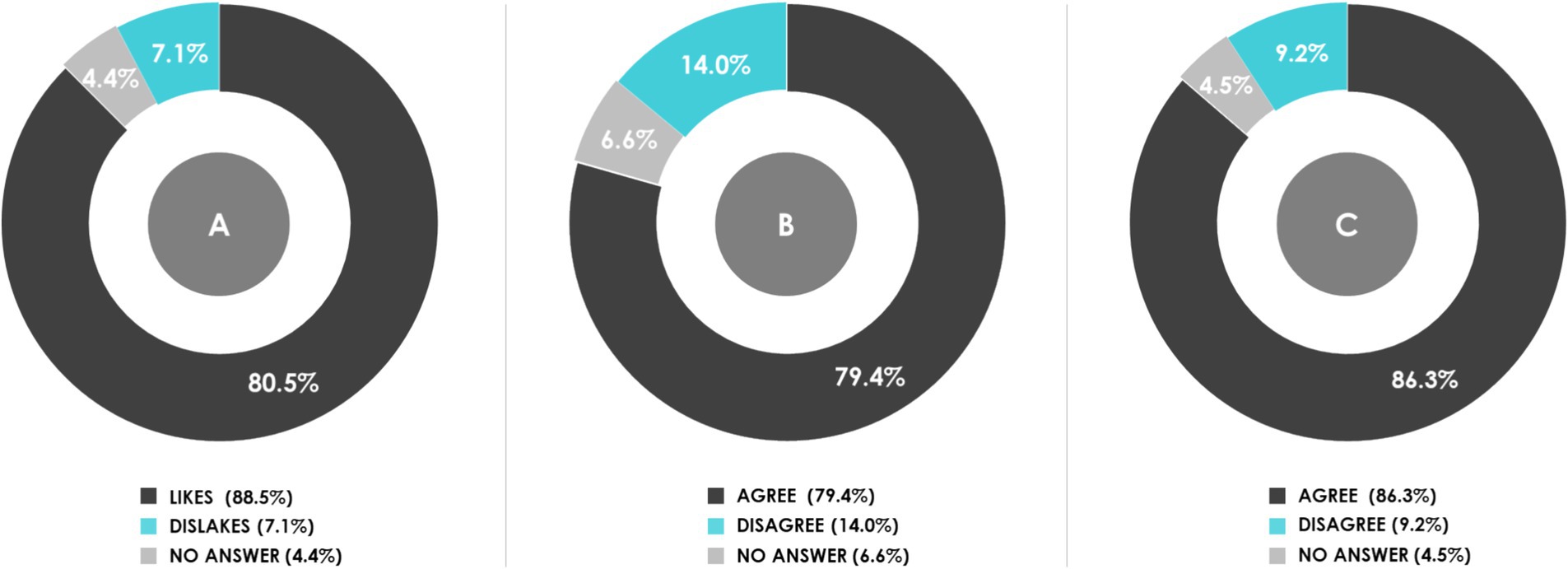
Figure 6. Prabowo-Gibran voters’ perceptions of politainment carried out in the 2024 presidential election. Source: researchers, in partnership with in-depth politics, 2024. Voter perceptions of Prabowo-Gibran in the 2024 presidential election.
Meanwhile, 86.3% of voters agree that the politainment strategy implemented by Prabowo-Gibran had a big influence on Prabowo-Gibran’s victory in the 2024 presidential election, while 9.2% of voters disagree, and 4.5% of voters do not answer (Figure 6C). Overall, these results reflect that the politainment strategy implemented by Prabowo-Gibran is quite effective in attracting sympathy/support and influencing the political preferences of the majority of Prabowo-Gibran voters in the 2024 Indonesian presidential election.
These results can be used as consideration for candidates and political parties in the future in implementing politainment, considering that the policy strategy implemented by Prabowo-Gibran was effective in attracting sympathy/support and influencing the political preferences of the majority of Prabowo-Gibran voters in the 2024 Presidential election.
Furthermore, Prabowo-Gibran voter perception of political positioning in downstream industry sustainability shows that 78.6% of voters agree that Prabowo-Gibran has been optimal in conveying political positioning in downstream industry sustainability policies, while 15.4% of voters disagree, and 6.0% of voters do not answer (Figure 7A). Meanwhile, 86.3% of voters said they agreed with Prabowo-Gibran’s political positioning in the sustainability of the downstream industry, while 3.3% of voters disagreed, and 10.4% of voters did not answer (Figure 7B). Meanwhile, 83.8% of voters said they agree/are optimistic regarding Prabowo-Gibran political positioning in the sustainability of the downstream industry, while 4.4% of voters disagree, and 11.8% of voters do not answer (Figure 7C).
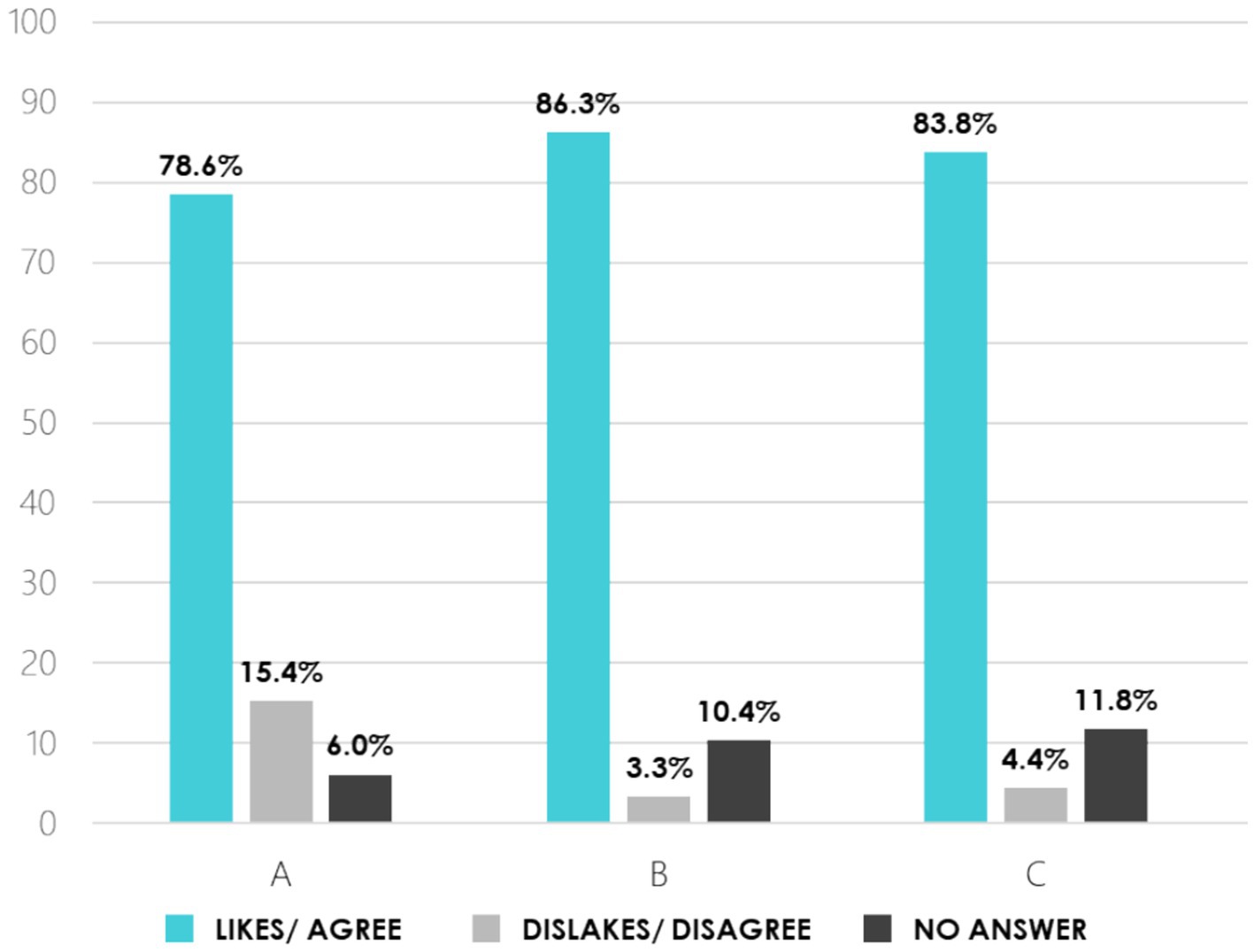
Figure 7. Prabowo-Gibran voters’ perceptions of the political positioning of downstream industry sustainability in the 2024 presidential election. Source: researchers, in partnership with in-depth politics, 2024.
Overall, these results show that the majority of Prabowo-Gibran voters agree that Prabowo-Gibran has been optimal in conveying political positioning in downstream industry sustainability policies. Apart from that, the majority of Prabowo-Gibran voters agree/are optimistic about Prabowo-Gibran’s political positioning in downstream industry sustainability policies.
5 Discussion
In the 2024 Indonesian presidential election, the Prabowo-Gibran National Campaign Team (TKN) implemented a politainment strategy by presenting the slogan (sluagh-ghairm) “Gemoy” as an expression of “Adorable” to Prabowo, which is then visualized using Artificial Intelligence (AI). This is to entertain and attract the votes of young voters because of their large number in the 2024 Indonesian presidential election. In terms of appearance, Prabowo-Gibran always wears light blue clothes in every political campaign. This aims to convey that politics must be peaceful and enjoyable. Clothes in light blue influence voters’ interest by creating an attractive and entertaining atmosphere.
Prabowo-Gibran National Campaign Team (TKN) implemented a politainment strategy by optimizing the use of TikTok social media. TikTok’s digital platform has a very large number of users and is popular in Indonesia, where the majority of users are young voters aged 18–24 years. This digital platform is effective in producing and distributing various Prabowo-Gibran political content, which is packaged with the background of the presidential campaign song “Okay Gas,” followed by the visualization of Prabowo’s “Dance Gemoy,” where the content created is oriented toward virality and entertainment, which is quite effective in reaching all voter segments, especially young voters.
Prabowo-Gibran engaged numerous artists and influencers in their political marketing activities, leveraging their extensive social media followings. Indirectly, content from artists and influencers can influence their followers on social media and have implications for increasing the Prabowo-Gibran electoral vote. The political positioning pattern strategy used by Prabowo-Gibran in the sustainability of downstream industry policies is using a reinforcement strategy. Prabowo-Gibran always conveys his commitment to sustainability and strengthening downstream industry policies in every political campaign. Overall, the majority of Prabowo-Gibran voters like/agree with the politainment strategy implemented and agree/are optimistic with Prabowo-Gibran’s political positioning in downstream industry sustainability policies.
6 Conclusion
The campaign strategy implemented by the Prabowo-Gibran National Campaign Team (TKN) in the 2024 Indonesian presidential election proved highly effective in garnering support and increasing the vote share for Prabowo-Gibran. This effectiveness is evidenced by the majority of Prabowo-Gibran voters expressing a preference for the politainment strategy adopted by the campaign. Furthermore, they acknowledged that this strategy significantly influenced their political preferences and played a crucial role in securing Prabowo-Gibran’s victory in the election.
In terms of political positioning, particularly regarding the sustainability of the downstream industry, Prabowo-Gibran employed a reinforcement strategy pattern. This approach highlighted their commitment to sustainability and the strengthening of the downstream industry. The majority of Prabowo-Gibran voters affirmed that the duo had effectively communicated their political positioning on downstream industry sustainability policies. Additionally, most voters expressed agreement with this positioning and optimism about Prabowo-Gibran’s approach to sustaining and enhancing downstream industry policies. The findings of this research offer valuable insights for candidates and political parties, emphasizing the importance of integrating politainment strategies and strategic political positioning to influence voters’ final decisions in general elections.
Data availability statement
The original contributions presented in the study are included in the article/supplementary material. Further inquiries can be directed to the corresponding author.
Ethics statement
The studies involving humans were approved by Universitas Palangka Raya, Indonesia. The studies were conducted in accordance with the local legislation and institutional requirements. The participants provided their written informed consent to participate in this study. Written informed consent was obtained from the individual(s) for the publication of any potentially identifiable images or data included in this article.
Author contributions
BS: Conceptualization, Data curation, Formal analysis, Funding acquisition, Investigation, Methodology, Project administration, Resources, Software, Supervision, Validation, Visualization, Writing – original draft, Writing – review & editing. AH: Conceptualization, Data curation, Formal analysis, Funding acquisition, Investigation, Methodology, Project administration, Resources, Software, Supervision, Validation, Visualization, Writing – original draft, Writing – review & editing. JS: Conceptualization, Data curation, Formal analysis, Funding acquisition, Investigation, Methodology, Project administration, Resources, Software, Supervision, Validation, Visualization, Writing – original draft, Writing – review & editing. DI: Conceptualization, Data curation, Formal analysis, Funding acquisition, Investigation, Methodology, Project administration, Resources, Software, Supervision, Validation, Visualization, Writing – original draft, Writing – review & editing. PU: Conceptualization, Data curation, Formal analysis, Funding acquisition, Investigation, Methodology, Project administration, Resources, Software, Supervision, Validation, Visualization, Writing – original draft, Writing – review & editing. AI: Conceptualization, Data curation, Formal analysis, Funding acquisition, Investigation, Methodology, Project administration, Resources, Software, Supervision, Validation, Visualization, Writing – original draft, Writing – review & editing. NH: Conceptualization, Data curation, Formal analysis, Funding acquisition, Investigation, Methodology, Project administration, Resources, Software, Supervision, Validation, Visualization, Writing – original draft, Writing – review & editing.
Funding
The author(s) declare that financial support was received for the research, authorship, and/or publication of this article. This article is part of the University of Palangka Raya research project funded by the Ministry of Education, Culture, Research, and Technology – University of Palangka Raya.
Acknowledgments
The researchers would like to thank Frontiers in Political Science. The researchers also conveyed their gratitude to the Ministry of Education, Culture, Research, and Technology, especially to the University of Palangka Raya and the University of Muhammadiyah Makassar. The researchers also would like to thank all those who have contributed to the completion of this article.
Conflict of interest
The authors declare that the research was conducted in the absence of any commercial or financial relationships that could be construed as a potential conflict of interest.
Publisher’s note
All claims expressed in this article are solely those of the authors and do not necessarily represent those of their affiliated organizations, or those of the publisher, the editors and the reviewers. Any product that may be evaluated in this article, or claim that may be made by its manufacturer, is not guaranteed or endorsed by the publisher.
References
Alturas, C. J. B., Balanza, J. K. P., Cabalse, P. L. C., Ignacio, K. J. V., Killip, A. Jr., and Nicdao, K. C. D. (2024). Political branding: the use of campaign color as symbolism of platforms among the presidential candidates in the 2022 elections. Div. J. 9:0050. doi: 10.48017/dj.v9iSpecial1.2831
Ashar, B., Pratama, H., Hidayat, R., and Nurcahya, W. F. (2024). Dampak kebijakan hilirisasi nikel terhadap peningkatan pendapatan Negara bukan pajak (minerba). J. Law Admin. Soc. Sci. 4, 798–808. doi: 10.54957/jolas.v4i5.890
Bekenova, A. (2022). Cross-country analysis of the impact of corruption and other factors on youth presence in parliament. J. Contemp. Govern. Public Policy 3, 71–87. doi: 10.46507/jcgpp.v3i2.73
Berman, E. A. (2017). An exploratory sequential mixed methods approach to understanding researchers’ data management practices at UVM: Integrated findings to develop research data services. J. eSci. Librar. 6:e1098. doi: 10.7191/jeslib.2017.1104
Boeky, K. S. P. (2024). Capres ‘Gemoy’: a personal branding analysis on Prabowo Subianto for the 2024 presidential election. mediasi 5, 50–65. doi: 10.46961/mediasi.v5i1.1019
Bright Indonesia Foundation and Markdata (2023). Track Record of 2024 Presidential Candidates on Climate Issues and Energy Transition. Available at: https://www.cerah.or.id/id/publications/report/detail/rekam-jejak-capres-2024-dalam-isu-iklim-dan-transisi-energi
Campbell, S., Greenwood, M., Prior, S., Shearer, T., Walkem, K., Young, S., et al. (2020). Purposive sampling: complex or simple? Research case examples. J. Res. Nurs. 25, 652–661. doi: 10.1177/1744987120927206
Center for Strategic and International Studies (CSIS) (2024). Strategi Perolehan Suara Lintas Generasi Prabowo-Gibran pada Pemilihan Umum 2024. Available at: https://www.csis.or.id/publication/strategi-perolehan-suara-lintas-generasi-prabowo-gibran-pada-pemilihan-umum-2024
Cervi, L., Tejedor, S., and Blesa, F. G. (2023). TikTok and political communication: the latest frontier of politainment? A case study. MaC 11, 203–217. doi: 10.17645/mac.v11i2.6390
Creswell, J. W., and Creswell, J. D. (2018). Research design: Qualitative, quantitative, and mixed methods approaches. 4th Edn: Sage Publishing. Available at: https://us.sagepub.com/en-us/nam/research-design/book270550
Di Nubila, K., Ballesteros-Herencia, C. A., Etura, D., and Martín-Jiménez, V. (2023). Technopopulism and Politainment in Brazil: Bolsonaro Government's weekly YouTube broadcasts. Media Commun. 11, 137–147. doi: 10.17645/mac.v11i2.6470
Egea-Medrano, M. A., Garrido-Rubia, A., and Rojo-Martínez, J. M. (2021). Political iconography and emotions in electoral campaigns: a communicative approach. Commun. Soc. 215-230, 215–230. doi: 10.15581/003.34.2.215-230
Fardiansyah, H., and Komalawati, E. (2024). Political communication strategy and public opinion for the victory of the Prabowo Gibran pair in the 2024 presidential and vice presidential elections of the Republic of Indonesia. Indo. J. Contemp. Multidiscip. Res. 3, 675–694. doi: 10.55927/modern.v3i4.10322
Firdaus, R., and Wibowo, I. A. (2024). Tinjauan Kritis atas Visi dan Misi Prabowo-Gibran tentang Kerangka Regulasi Transisi Energi Hijau. Jurnal Pro Natura 1, 19–39. Available at: https://jurnal.ugm.ac.id/v3/Pro-Natura/article/view/13500
Hirose, M., and Creswell, J. W. (2023). Applying core quality criteria of mixed methods research to an empirical study. J. Mixed Methods Res. 17, 12–28. doi: 10.1177/15586898221086346
Irawan, S. A., and Lexianingrum, S. R. P. (2024). Analisis Lagu ‘Oke Gas’ Dalam Meningkatkan Reputasi Prabowo-Gibran di Kalangan Gen Z. IJM: Indo J. Multidiscip. 2, 346–356. Available at: https://journal.csspublishing.com/index.php/ijm/article/view/753
Ismail, I. A., Pernadi, N. L., and Febriyanti, A. (2022). How to grab and determine the size of the sample for research. Int. J. Acad. App. Res. (IJAAR) 6, 88–92. https://repository.unp.ac.id/id/eprint/41155
Krustiyati, J. M., and Gea, G. V. V. (2023). The paradox of downstream mining industry development in Indonesia: analysis and challenges. Sriwijaya Law Rev. 7, 335–349. doi: 10.28946/slrev.Vol7.Iss2.2734.pp335-349
Kuipers, N., Toha, R., and Sumaktoyo, N. G. (2024). Third Time’s the charm: the youth vote and Prabowo’s victory in the 2024 Indonesian presidential election. Pac. Aff. 97, 563–585. doi: 10.5509/2024973-art6
LaMarre, H. (2015). Political entertainment: historical traditions and contemporary genres. Oxford Res. Encyclo. Commun. doi: 10.1093/acrefore/9780190228613.013.103
Lituhayu, D., Rahman, A. Z., Muluk, M. R. K., and Huda, M. N. (2023). Anti-corruption education policy outputs for combatting corruption in Indonesia: applying the theory of planned behaviour. J. Contemp. Govern. Public Policy 4, 195–214. doi: 10.46507/jcgpp.v4i2.230
LSI. (2024). Survei Nasional Elektabilitas, Pengaruh Debat, dan Migrasi Suara. Rilis Lembaga Survei Indonesia. Available at: https://www.lsi.or.id/post/rilis-lsi-20-januari-2024
Maulana, M. L., and Harjono, B. (2024). Politics and AI: communication style of presidential candidate Prabowo-Gibran's political campaign. Jurnal Komunikasi dan Media 4, 159–169. doi: 10.24167/jkm.v4i2.11814
Mendoza, M. E. H. (2022). Philippine elections 2022: TikTok in Bongbong Marcos' presidential campaign. Contemp. Southeast Asia J. Int. Strat. Aff 44, 389–395. Available at: https://www.muse.jhu.edu/article/879193
National Campaign Team (TKN) Internal Data. (2024). Prabowo-Gibran 2024: Bersama Indonesia Maju. Available at: https://prabowogibran2.id/
Nistor, P. (2024). Methodological planning and data collection. Ensuring a valid and credible research of a questionnaire survey in social work. Soc. Sci. 13, 43–57. doi: 10.18662/lumenss/13.2/106
Nyimbili, F., and Nyimbili, L. (2024). Types of purposive sampling techniques with their examples and application in qualitative research studies. Brit. J. Multidiscip. Adv. Stud. 5, 90–99. doi: 10.37745/bjmas.2022.0419
Ong, J. C. (2022). Philippine elections 2022: the Dictator's son and the discourse around disinformation. Contemp. Southeast Asia 44, 396–403. Available at: https://hdl.handle.net/20.500.14394/8376
Pavlina, S. Y. (2023). Electoral campaign still visuals: making politics entertaining. In: J. Sib. Fed. Univ. Humanit. 16, 9219–9232. Available at: https://elib.sfu-kras.ru/handle/2311/150133
Perry, N. E. (2023). Introduction: Using qualitative methods to enrich understandings of self-regulated learning : Routledge, 1–3. doi: 10.4324/9781410608529
Putra, A. T., and Samputra, P. L. (2023). Analysis of nickel export restriction and downstream policy in Indonesia. Indo. J. Multidiscip. Sci. 3, 180–187. doi: 10.55324/ijoms.v3i3.749
Riegert, K., and Collins, S. (2016). Politainment. Int. Encyclo. Politic. Commun. 1-11:1. doi: 10.1002/9781118541555.wbiepc157
Satriawan, B. H., and Purwaningsih, T. (2021). Political marketing Prabowo Subianto and Sandiaga Salahuddin Uno in the 2019 presidential election. Jurnal Ilmu Sosial dan Ilmu Politik 25, 127–143. doi: 10.22146/jsp.53688
Schultz, D. A. (2012). Politainment: The ten rules of contemporary politics a Citizens' guide to understanding campaigns and elections : David Schultz. Available at: https://www.mruni.eu
Syahda, G. A., and Sumarlan, I. (2024). Political Communications of Prabowo Subianto Campaign Using Tiktok on 2024 president elections. Ahmad Dahlan International Conference on Communication and Media.
Taherdoost, H. (2018). Validity and reliability of the research instrument; how to test the validation of a questionnaire/survey in a research. SSRN Electron. J. doi: 10.2139/ssrn.3205040
The Economist (2024). TikTok is a key battleground in Indonesia’s election. Available at: https://www.economist.com/asia/2024/02/01/tiktok-is-a-key-battleground-in-indonesias-election
The Economist Intelligence Unit (EIU). (2022). Democracy Index 2022. Available at: https://www.eiu.com/n/campaigns/democracy-index-2022
The General Elections Commission of Indonesia. (2023). General election commission decree number 857 in 2023 concerning determination of the recapitulation of the National Level Registered Voters in the 2024 general election. Available at: https://jdih.kpu.go.id/data/data_kepkpu/2023kpt857.pdf
The General Elections Commission of Indonesia. (2024). General election commission decree number 504 in 2024 concerning determination of the elected president and vice president in the 2024 general election. Available at: https://jdih.kpu.go.id/data/data_kepkpu/2024kpt504.pdf
Vannette, D., and Krosnick, J. (2018). “Questionnaire Design” in The Palgrave handbook of survey research. eds. D. Vannette and J. Krosnick (Cham: Springer International Publishing), 439–455.
We Are Social. (2024). Digital 2024 global overview report. Available at: https://indd.adobe.com/view/8892459e-f0f4-4cfd-bf47-f5da5728a5b5
Keywords: downstream industry, political entertainment, positioning, Prabowo-Gibran, presidential election
Citation: Satriawan BH, Haridison A, Sandi JRA, Iskandar D, Utami PJ, Irwan AIU and Hartaman N (2025) Politainment in the 2024 Indonesian presidential election and positioning in downstream industry. Front. Polit. Sci. 6:1494578. doi: 10.3389/fpos.2024.1494578
Edited by:
Simon Gray, Independent Researcher, Invercargill, New ZealandReviewed by:
Ahmad Sururi, Sultan Ageng Tirtayasa University, IndonesiaAhmad Mustanir, Universitas Muhammadiyah Sidenreng Rappang, Indonesia
Burhanuddin Burhanuddin, Universitas Sulawesi Barat, Indonesia
Copyright © 2025 Satriawan, Haridison, Sandi, Iskandar, Utami, Irwan and Hartaman. This is an open-access article distributed under the terms of the Creative Commons Attribution License (CC BY). The use, distribution or reproduction in other forums is permitted, provided the original author(s) and the copyright owner(s) are credited and that the original publication in this journal is cited, in accordance with accepted academic practice. No use, distribution or reproduction is permitted which does not comply with these terms.
*Correspondence: Bismar Harris Satriawan, c2F0cmlhd2FuaGJAZ21haWwuY29t
 Bismar Harris Satriawan
Bismar Harris Satriawan Anyualatha Haridison1
Anyualatha Haridison1